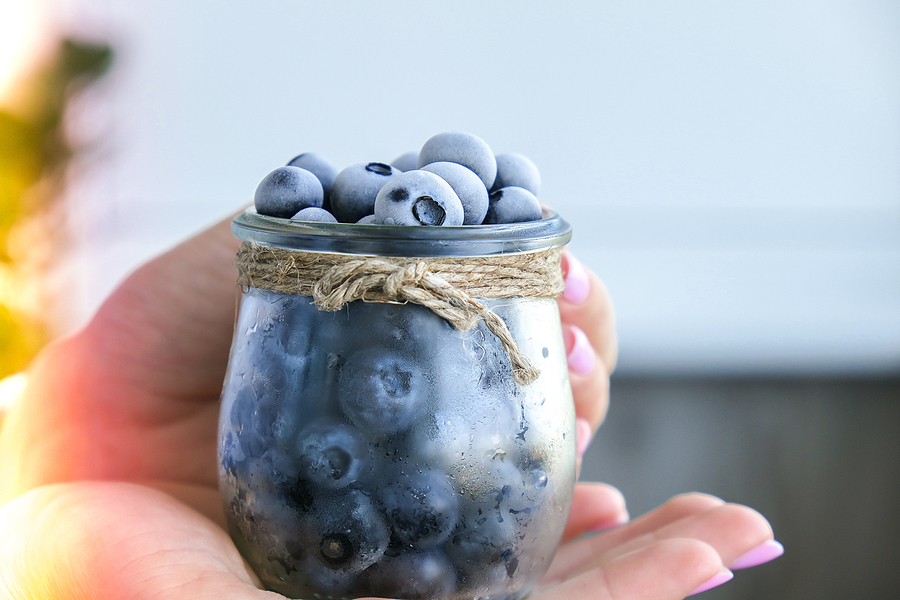Have you seen the words “gluten-free” everywhere lately? They’re on restaurant menus, products in the supermarket, and in headlines and news stories all over the place these days. It used to be that unless you were diagnosed with celiac disease, you probably didn’t know what gluten was. Nowadays, even if you don’t really know what it is, it’s likely you’ve heard of gluten.
I’ve been talking about gluten with my patients for decades. But like so many other things, it’s taking a long time for conventional medicine to acknowledge what I have believed for years: for some people, even without an allergy, gluten can cause big problems!
The connection between gluten and digestive issues is well-studied and accepted now, but there are so many other symptoms that can indicate an intolerance to gluten. Unfortunately, there aren’t a lot of studies available yet to back up what I hear from patients in my practice. But enough women have told me that eliminating gluten from their diet has made these symptoms disappear – and that if they add gluten back into the mix the symptoms resurface – to believe that gluten sensitivity is a big problem for more women than we know.
Let’s take a quick look at what gluten is, the differences between celiac disease and gluten sensitivity, and some of those more surprising symptoms that might indicate it’s time to take a closer look at whether a gluten free diet might be right for you.
What is Gluten?
Gluten is a protein found is wheat, barley, rye and other grains. That means that when you are consuming bread, pasta, cereal, pizza and so many other things, you’re getting a constant supply of gluten as well.
Gluten makes up approximately 80% of the amino acids found in these grains, but it doesn’t contain any essential nutrients. That means that if you eliminate gluten from your diet, but get all essential nutrients from other foods or nutritional supplements, the lack of gluten won’t cause other health issues.
Continuing to eat gluten if you have a sensitivity, on the other hand, can cause any number of problems. The most commonly understood gluten reaction happens in people with celiac disease. Eating gluten triggers an immune reaction, causing inflammation and damage to their intestinal tracts, as well as other areas in the body.
If I Test Negative for Celiac Disease, Does That Mean Gluten Isn’t the Issue?
Only a very small percentage – between 1 and 3 percent – of the population is estimated to have celiac disease. But a far higher percentage of the women I see report symptoms that are alleviated by eliminating gluten. Why is that? Because full blown celiac disease is not the only condition impacted by gluten.
While conventional medicine has long taken an all or nothing approach to gluten sensitivity, we are finally beginning to see evidence that the issue isn’t quite so simple. In fact, it’s now accepted that gluten sensitivity occurs on a spectrum, with minor issues at one end, and celiac disease at the other.
Non-celiac gluten sensitivity (NCGS) falls somewhere in the middle of that spectrum, and is starting to get a lot of attention – with good reason. In recent years, more and more research is showing that gluten intolerance impacts a large number of people who do not have celiac disease or wheat allergy. In 2012 NCGS was included in a published list of gluten disorders for the first time, and it is considered the most common syndrome of gluten intolerance.
So how do you know if you’re dealing with NCGS? There are a few common factors, which include a negative test for celiac disease, symptoms that are both gastrointestinal and non-gastrointestinal, and they see marked improvement when they start a gluten-free diet.
While NCGS isn’t nearly as serious as celiac disease, where even the tiniest bit of gluten can cause huge reactions, a sensitivity to gluten can nonetheless cause a lot of uncomfortable symptoms. And there’s no reason to simply live with them!
Isn’t Eating Gluten Free Just a Fad?
As with any condition that isn’t well understood, there are plenty of skeptics when it comes to the effectiveness of a gluten free diet. And questioning the validity of something that gets so much media attention isn’t a bad idea; blindly following the newest trends can put you on a roller coaster of ever changing information, leaving you more confused than ever about how to treat your symptoms.
But here’s the thing — there’s no harm in trying a gluten free diet for a little while. If your symptoms don’t improve, you can keep looking for answers. But if they do, won’t it be great to feel better?
I have a friend, Betty, who struggled with joint and muscle pain for years. She tried physical therapy, massage, and adapted her exercise routine to see if overuse was the problem. Nothing helped. Then she started reading about gluten and inflammation, and decided to give a gluten free diet a shot. Within a month, the lingering tendonitis pain in her elbow had disappeared – and has never returned! Not only that, but the stiffness in her fingers subsided, along with pain in her feet. And as an added bonus, the minor digestive issues she’s struggled with since she was a teen have all but disappeared. Every now and again, she decides to test the theory and starts eating products with gluten in them again. Inevitably, she tells me, the pain and stiffness in her joints return within a week. That’s just one story of the dozens I’ve heard recently.
I’ve heard people say that gluten free products are a waste of money, and often they aren’t as nutritious as other products that contain gluten. To some extent, they’re right. There’s really no need to replace things like bread and pasta with more expensive substitutes. Many of those products are highly processed and lack nutritional value anyway. Instead, I advise patients to really examine their eating habits. There are so many amazing whole foods that are naturally gluten free!
On occasion, you may want a piece of toast as part of a balanced breakfast, or a sandwich , and that’s where the gluten free substitutes come in handy. But gluten free eating means finding new patterns, and embracing new ideas. Try a salad instead of a sandwich – you can put the same ingredients on top of lettuce, and are likely to add even more delicious and nutritious vegetables. Pasta sauce works well over spiralized noodles or spaghetti squash. There are so many great gluten free recipes out there that use fresh whole foods, including whole grains that don’t contain gluten.
So Are You Saying Everybody Should Be Gluten Free?
When women come to see me they are looking for answers. They have symptoms that no one can explain, and they are sick and tired of feeling sick and tired. It’s women like this that I’m writing for here. There’s a reason you took time out of your busy day to read this article – so my goal is to give you as much information as I can.
I urge people to hear what I’m saying, and to do some research themselves. There’s plenty of information on gluten out there! Don’t just take my word for it — take some time to really explore what a gluten free lifestyle could do for you.
If you aren’t struggling with unexplained symptoms, or you try a gluten free diet and feel no difference, then gluten probably isn’t an issue for you. But if you are struggling with digestive issues or some of these other common symptoms, it might be time to dig a little deeper.
What are those symptoms? Let’s take a look at five common, but surprising, ways gluten might be impacting your health.
5 Symptoms of Gluten Sensitivity
Some symptoms are quickly recognized as having a connection to gluten, especially digestive issues and chronic fatigue. Others, like the ones below, can be more tricky. Many can indicate a number of other health issues as well. If you only have one, gluten intolerance may be less likely. But if you notice a combination of these symptoms, it’s worth taking a closer look.
1. Anemia or Other Nutrient Deficiencies
One of the main problems caused by gluten sensitivity is that essential nutrients from food are not able to be absorbed. Anemia, or iron deficiency, can be a big red flag. Research has shown that gluten intolerance plays a role in the development of refractory anemia. Another small study found that all but one of the patients diagnosed with celiac disease recovered from anemia just by following a gluten free diet.
2. Joint and Muscle Pain
So many things can create pain in the joints and muscles. That’s because the root cause of this pain is inflammation. In some people, gluten causes an inflammatory response. Often, joint pain can be misdiagnosed as rheumatoid arthritis. But like Betty, who I told you about earlier, you might want to explore how gluten consumption impacts your pain.
3. “Brain fog”
Have you ever felt like your thoughts were covered in a thick layer of fog? Do you struggle to hold onto your train of thought, frequently go into a room only to forget why, or find seemingly simple tasks almost impossible to complete? It’s a terrible feeling, and could be a sign that your facing sensitivity to gluten. Research in this area is limited, and focuses mainly on those with celiac disease. One very small study showed improvements in cognitive performance in patients newly diagnosed with celiac disease who followed a gluten free diet. While further research is clearly needed, if “brain fog” is impeding your daily life, the connection to gluten consumption is worth exploring.
4. Skin Conditions
If you find yourself with uncontrollably itchy skin rashes, especially on your arms, torso, face, buttocks, elbows or hairline, gluten contamination could be the issue. Dermatitis herpetiformis has been found to impact 15 to 20% of people with celiac disease. And that’s just one skin problem – there’s a wide range of others skin conditions that could indicate you have a sensitivity to gluten, including chronic dry skin, Eczema, psoriasis, rosacea, hives and acne. While there’s currently little research directly tying these conditions to gluten, many of my patients have seen skin rashes disappear once they’ve cut gluten from their diet.
5. Mood Changes
Brain fog isn’t the only brain related issue that gluten may impact. Depression and anxiety may increase in those with gluten sensitivities. A small clinical trial found that short term exposure to gluten in individuals who routinely followed a gluten free diet induced feelings of depression. When the lining of the small intestine is irritated by gluten exposure, inflammation can be triggered throughout the body and brain. Gut damage caused by gluten sensitivity can also make it difficult for your body to absorb crucial nutrients that have an impact on brain health. And gluten is similar in structure to brain tissue, so when your immune system senses a threat from gluten in the blood, it may erroneously attack brain tissue.
So How Do I Know If a Gluten Free Diet is Right for Me?
If you’ve been tested for celiac disease with negative results, but still have some of all of these symptoms, the best way to determine if a gluten free diet can help is to try it! This is a step you can take without doctor’s orders or a prescription — simply alter your diet to leave the gluten out.
Because it will take some time for the gluten to completely leave your system, it’s best to eliminate gluten for at least 30 days – preferably longer. Once you’ve been eating gluten free for up to three months, reintroduce a lot of products that contain gluten. If you notice that symptoms have gone away, but return when you try to add gluten back in, it’s a pretty clear signal that you’re dealing with gluten sensitivity.
Be sure that you don’t change anything else about your diet at the same time – that could lead to false assumptions if you have other food sensitivities at play. There are many different foods that can cause reactions, including dairy, eggs, shellfish and nuts. If you really want to get to the bottom of your symptoms, it’s important to eliminate one thing at a time.
Don’t Neglect Nutrients!
Because so many of the foods that contain gluten, including breads and cereals, are commonly fortified with vitamins, a sudden switch to gluten free could leave you lacking in nutrients, which can cause serious health problems. It’s important to eat a balanced, healthy diet filled with whole foods, healthy fats and fiber. Fiber is crucial to proper bowel functioning, so you need to be sure you’re finding other sources if you eliminate whole wheat. Try beans, vegetables or gluten-free whole grains like quinoa and brown rice. A high quality multivitamin can ensure that you continue to get the essential vitamins and minerals your body needs.
Related article: Nutritional and Lifestyle Guidelines
Drop the Gluten and Free Yourself from Symptoms!
There’s no need for symptoms to keep you feeling lousy when a simple solution might be right in front of you. If you’ve talked to your doctor to eliminate serious medical concerns, but aren’t getting any real answers, think about what I’ve said here. Try eliminating gluten to see if you find relief. The worst thing that can happen is you don’t feel any change. But the best case scenario could leave you feeling healthy and free — gluten free!
References:
http://drflannery.com/gluten-can-cause-depression-anxiety-brain-fog-and-other-brain-disorders/
https://www.healthline.com/nutrition/6-shocking-reasons-why-gluten-is-bad#section6
https://www.health.harvard.edu/staying-healthy/ditch-the-gluten-improve-your-health







